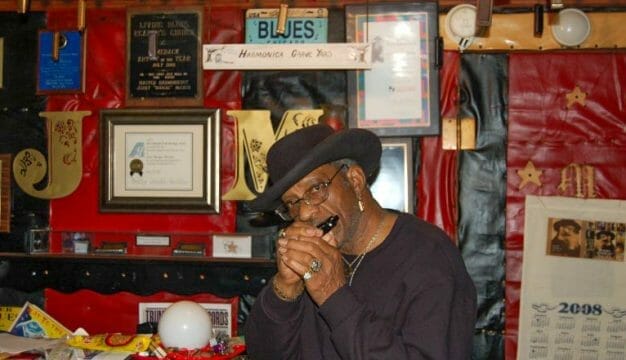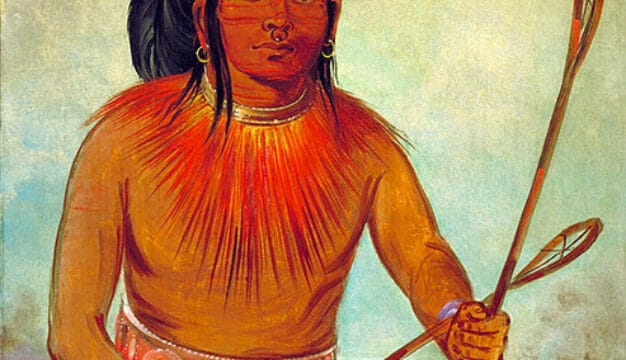Alabama Folklife Association
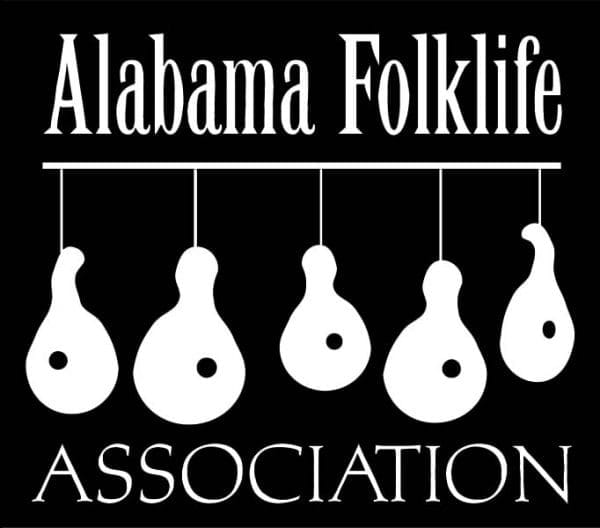 Alabama Folklife Association Logo
The Alabama Folklife Association (AFA), headquartered at the Alabama Center for Traditional Culture in Montgomery, is a statewide nonprofit volunteer organization that promotes knowledge and appreciation of Alabama folklife. It sponsors research on traditional aspects of Alabama folk culture, including shape-note singing, decoration days, folk pottery, basketry, foodways, quilting, midwifery, and traditional work practices. The association also sponsors festivals and conferences and produces publications, videos, and sound recordings featuring Alabama folk artists and their work.
Alabama Folklife Association Logo
The Alabama Folklife Association (AFA), headquartered at the Alabama Center for Traditional Culture in Montgomery, is a statewide nonprofit volunteer organization that promotes knowledge and appreciation of Alabama folklife. It sponsors research on traditional aspects of Alabama folk culture, including shape-note singing, decoration days, folk pottery, basketry, foodways, quilting, midwifery, and traditional work practices. The association also sponsors festivals and conferences and produces publications, videos, and sound recordings featuring Alabama folk artists and their work.
In 1980, arts scholars Hank Willett and Brenda McCallum joined with a number of academics and folklorists from across the state to establish the AFA. In 1988, a group of people interested in creating a state folk festival joined the AFA and broadened its scope. During the succeeding five years, members of the AFA did fieldwork to produce the festival, to locate craftspeople and musicians to participate, and to solicit funds. The resulting Alabama Folklife Festival was held for two successive years in Birmingham as part of City Stages, a large outdoor festival, and for the next three years was held in Montgomery’s Old Alabama Town.
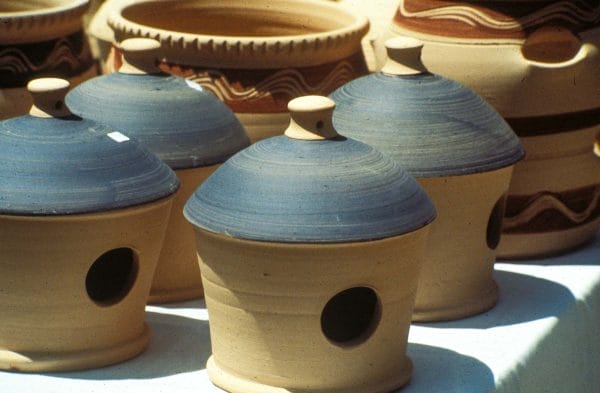 Miller’s Pottery Birdhouses
The festival proved to be expensive and time-consuming, however, and the AFA decided to refocus its efforts on the research projects of individual members. Under the sponsorship of the AFA and with grants from its parent agency, the Alabama State Council on the Arts (ASCA), and the National Endowment for the Arts, members produced recordings of various types of folk music traditional to Alabama, such as fiddling and African American a cappella gospel quartet singing. The AFA also produced a video about Sacred Harp singing on Sand Mountain, a book and CD about Primitive Baptist hymn singing, and several volumes of its scholarly journal, Tributaries. In addition, the AFA assisted two groups of shape-note singers in reprinting The Colored Sacred Harp and The Christian Harmony, two books central to their traditions.
Miller’s Pottery Birdhouses
The festival proved to be expensive and time-consuming, however, and the AFA decided to refocus its efforts on the research projects of individual members. Under the sponsorship of the AFA and with grants from its parent agency, the Alabama State Council on the Arts (ASCA), and the National Endowment for the Arts, members produced recordings of various types of folk music traditional to Alabama, such as fiddling and African American a cappella gospel quartet singing. The AFA also produced a video about Sacred Harp singing on Sand Mountain, a book and CD about Primitive Baptist hymn singing, and several volumes of its scholarly journal, Tributaries. In addition, the AFA assisted two groups of shape-note singers in reprinting The Colored Sacred Harp and The Christian Harmony, two books central to their traditions.
In 2000, the AFA entered into a partnership with ASCA that provided funding for a part-time executive director, Joyce Cauthen, who along with a seven-member board of directors, developed a more public face for AFA. A website, launched that same year, now helps AFA achieve its mission of promoting knowledge and appreciation of Alabama folklife and makes its products and services available to Alabamians and people around the world. AFA continues to sponsor projects, such as a book and CD set entitled Judge Jackson and the Colored Sacred Harp, by Joe Dan Boyd, and Wiregrass Note, a CD of African American Sacred Harp singing.
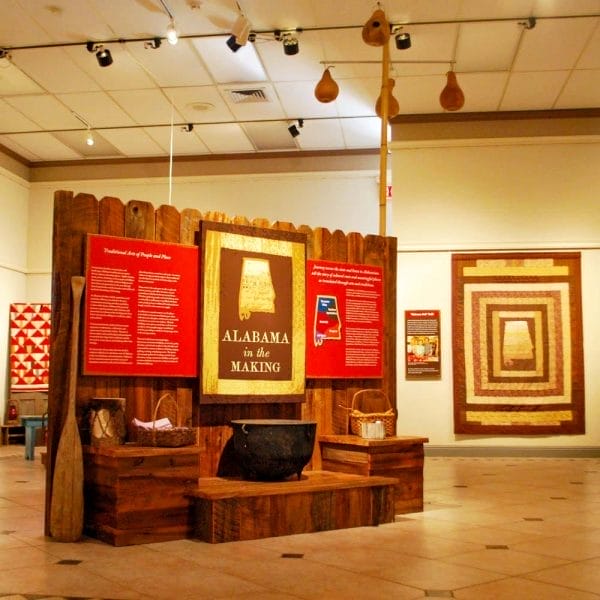 Alabama in the Making Exhibit
In conjunction with its annual meeting, the AFA also invites the public to programs in locations across the state, such as Mobile, Talladega, Selma, Anniston, and Grove Hill. There, participants explore through lectures and tours the interesting sites and unique cultural offerings of these places. AFA also raises the profile of Alabama folklife by setting up booths at festivals, farmers markets, and fiddlers conventions. In 2007, with funding from Alabama’s “Support the Arts” license plate, AFA collaborated with the Alabama Department of Archives and History to create the Archive of Alabama Folk Culture, a repository of research by state folklorists as well as recordings, photographs, crafts, oral history interviews, and other items donated by families of Alabama’s folk musicians, crafters, shape-note singers, and other tradition bearers.
Alabama in the Making Exhibit
In conjunction with its annual meeting, the AFA also invites the public to programs in locations across the state, such as Mobile, Talladega, Selma, Anniston, and Grove Hill. There, participants explore through lectures and tours the interesting sites and unique cultural offerings of these places. AFA also raises the profile of Alabama folklife by setting up booths at festivals, farmers markets, and fiddlers conventions. In 2007, with funding from Alabama’s “Support the Arts” license plate, AFA collaborated with the Alabama Department of Archives and History to create the Archive of Alabama Folk Culture, a repository of research by state folklorists as well as recordings, photographs, crafts, oral history interviews, and other items donated by families of Alabama’s folk musicians, crafters, shape-note singers, and other tradition bearers.
In an effort to teach others to document and present Alabama traditions, the AFA sponsors the bi-yearly Alabama Community Scholars Institute, an intensive summer program that teaches interviewing techniques, photography, sound and video recording, grant-seeking, and other folklife fieldwork skills.
Further Reading
- Martin, Stephen H., ed. Alabama Folklife: Collected Essays. Birmingham: Alabama Folklife Association, 1989.
- Tartt, Ruby Pickens. Dim Roads and Dark Nights: The Collected Folklore of Ruby Pickens Tartt. Edited by Alan Brown. Livingston, Ala.: Livingston University Press, 1993.
- ———. Alabama: One Big Front Porch. Jackson: University Press of Mississippi, 1985.
- ———. Twice Blessed. Montgomery, Ala.: Black Belt Press, 1996.
